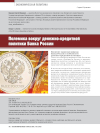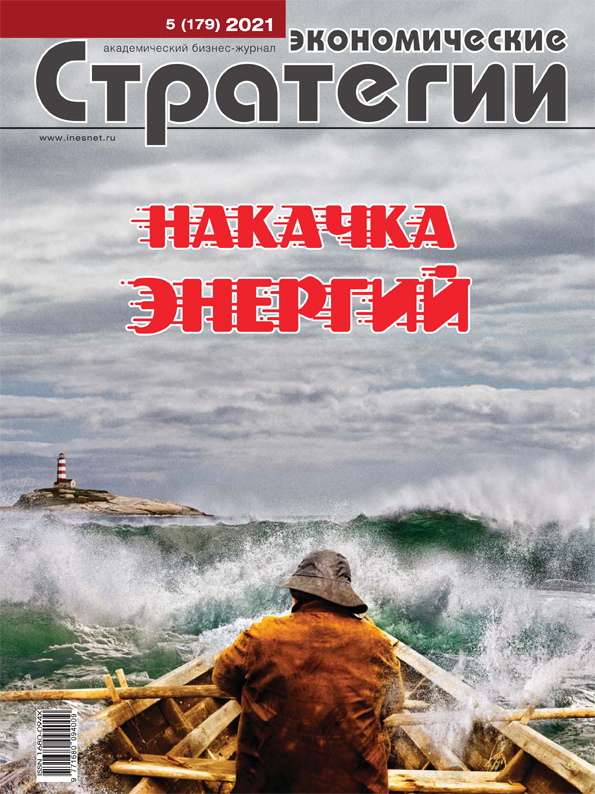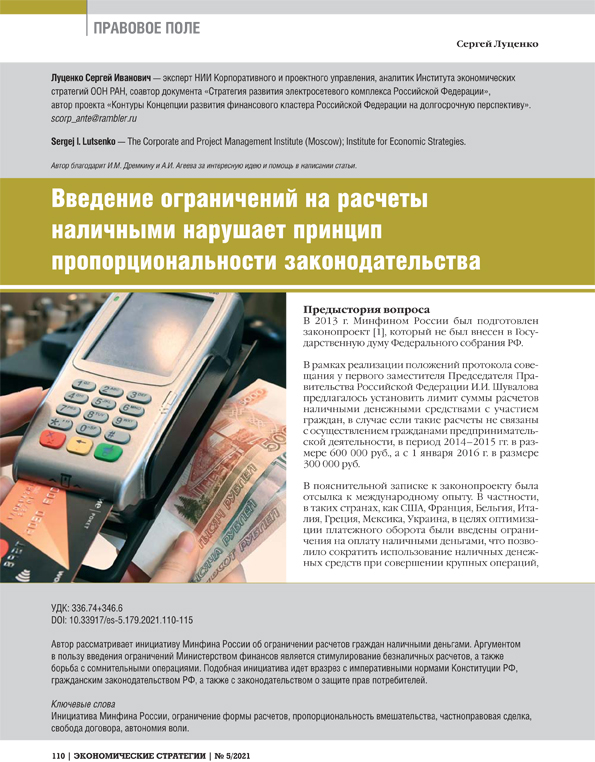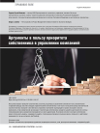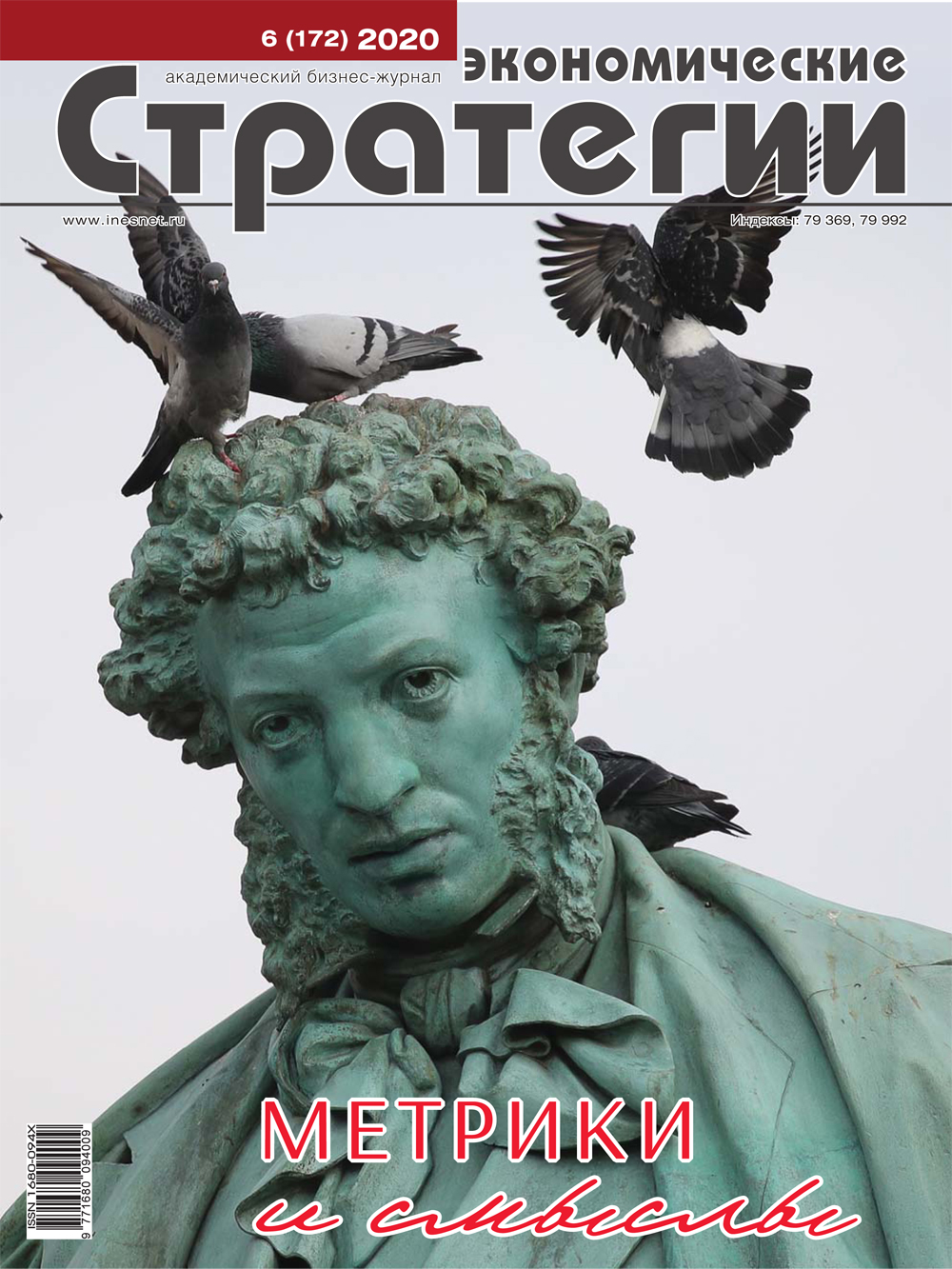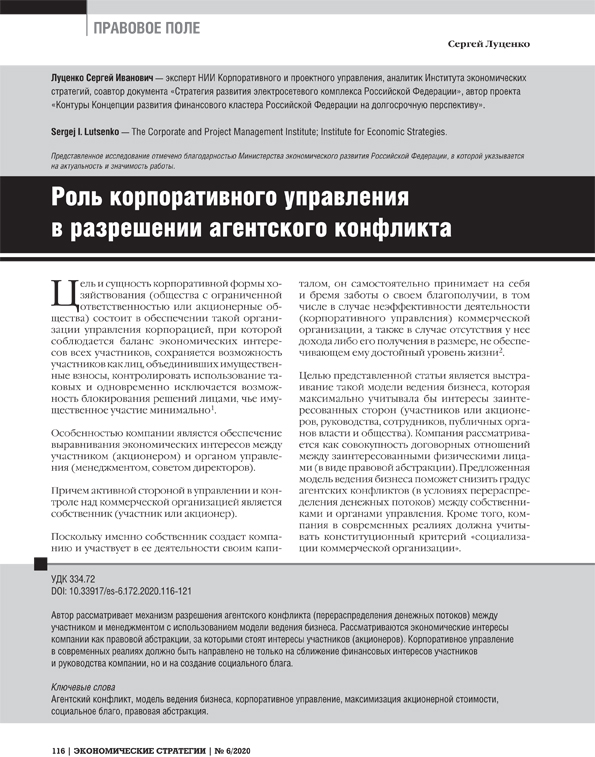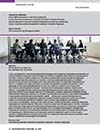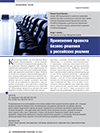Procedural-legal Issues of Elections in the Institutes of the Russian Academy of Sciences
DOI: 10.33917/es-1.199.2025.58-65
The article dwells on legal aspects of procedural issues during elections in the institutes of the Russian Academy of Sciences and the consequences of violations. Procedure for election to the post of director of a scientific organization should comply with the RF legislation, be justified by the election regulations and not be formal in nature. There are a number of violations that are grounds for recognizing the election results as null and void, contradicting the foundations of law and order, as well as morality. Such election practices in RAS institutes undermine the credibilit y of science in the eyes of society.
References:
1. Opredelenie Vos’mogo kassatsionnogo suda obshchey yurisdiktsii ot 28 fevralya 2023 g. N 88-4922/2023 [Ruling of the Eighth Cassation Court of General Jurisdiction dated February 28, 2023 No. 88-4922/2023]. Dostup iz SPS “Konsul’tant Plyus”.
2. Opredelenie Vos’mogo kassatsionnogo suda obshchey yurisdiktsii ot 7 marta 2023 g. N 88-4416/2023 [Ruling of the Eighth Cassation Court of General Jurisdiction dated March 7, 2023 No. 88-4416/2023]. Dostup iz SPS “Konsul’tant Plyus”.
3. Pyatkova O. Chto stoit za vyborami v RAN? [What is Behind the Elections to the Russian Academy of Sciences?]. Media Krug NKO, 2025, 11 yanvarya, available at: https://media-krug.ru/blog/chto-stoit-za-vyborami-v-ran
4. Grazhdanskiy kodeks Rossiyskoy Federatsii (chast’ pervaya) ot 30 noyabrya 1994 g. N 51-FZ [Civil Code of the Russian Federation (part one) of November 30, 1994 No. 51-FZ]. Sobranie zakonodatel’stva RF, 1994, no 32.
5. Postanovlenie Trinadtsatogo arbitrazhnogo apellyatsionnogo suda ot 26 yanvarya 2022 g. po delu N A56-109735/2020 [Ruling of the Thirteenth Arbitration Court of Appeal dated January 26, 2022 in case No. A56-109735/2020]. Dostup iz SPS “K onsul’tant Plyus”.
6. Trudovoy kodeks Rossiyskoy Federatsii ot 30 dekabrya 2001 g. N 197-FZ [Labor Code of the Russian Federation of December 30, 2001 No. 197-FZ].
Sobranie zakonodatel’stva RF, 2002, no 1 (part one).
7. Pis’mo Minfina Rossii ot 16 oktyabrya 2007 g. N 03-03-06/1/723 [Letter of the Ministry of Finance of Russia dated October 16, 2007 No. 03-03-06/1/723]. Dostup iz SPS “Konsul’tant Plyus”.
8. Apellyatsionnoe opredelenie Sankt-Peterburgskogo gorodskogo suda ot 19 aprelya 2022 g. po delu N 2-9783/2021 [Appellate Ruling of the St. Petersburg City Court dated April 19, 2022 in case No. 2-9783/2021]. Dostup iz SPS “K onsul’tant Plyus”.
9. Opredelenie Vtorogo kassatsionnogo suda obshchey yurisdiktsii ot 7 dekabrya 2023 g. N 88-28134/2023 [Ruling of the Second Cassation Court of General Jurisdiction dated December 7, 2023 No. 88-28134/2023]. Dostup iz SPS “Konsul’tant Plyus”.
10. Opredelenie Konstitutsionnogo suda RF ot 17 fevralya 2015 g. N 404-O [Ruling of the Constitutional Court of the Russian Federation of February 17,
2015 No. 404-O]. Dostup iz SPS “Konsul’tant Plyus”.
11. Postanovlenie Plenuma Verkhovnogo suda RF ot 23 iyunya 2015 g. N 25 “O primenenii sudami nekotorykh polozheniy razdela I chasti pervoy Grazhdanskogo kodeksa Rossiyskoy Federatsii” [Resolution of the Plenum of the Supreme Court of the Russian Federation of June 23, 2015 No. 25 “On the











